2 hrs, 3 kms
The road climbs up through the jungle cliffs where I find a quiet spot for my Parkbench Concert, since I couldn't find a decent spot in town
. I'm soon joined by a fellow wearing torns and wielding a machete. Ironically I feel more at ease when I see guys in dirty clothes carrying machetes: that means that they're hardworking farmers, not just unemployed youth "liming" (chilling out doing nothing).
Sure enough this fellow is a farmer, but that doesn't mean he doesn't have time to stop to listen to some music, and even try out the guitar himself. And he gives me some important insights into farming in Grenada
"We grow our food and send it to Trinidad to be canned and packaged and sold back to us much more expensive... we should be able to do that ourselves. Under Maurice Bishop it wasn't like this--we had our own factories and canneries--but that's all gone now."
Later I talk to Kim about this to get his take on the Grenadian economy. His response is pretty cynical.
"Grenada has one of the highest debts per capita in the world
. It seems half the budget goes to paying the interest on this debt, and the other half goes to pay the civil servants--Grenada has way too many of them" (I'd have to confirm this, based on my experience coming through immigration)
"Farming is very hard work and pays little, and few young people want to do it. And there simply aren't many other jobs unless you have the connections so you can be a civil servant. They feel trapped and frustrated, and someday that frustration is going to explode"
He continues, "We have a huge pool of non skilled labour basically sitting on the side of the road with no future.
This is primarily due to the fact that we are no longer a labor intensive society.....nowadays 4 men can do what used to take 20. Also it is much more difficult for the young to emigrate which in turn means more unemployed youth and also less funds being sent back to the island...
Add to all the above that this section of the society is also the least educated and the most influenced by drugs,fast money and the worst of cable TV
. It amounts to a lot of angry seriously pissed off kids who really dont understand the root cause of their situation or who the real enemy is"
I suddenly realize that there's a dark side to this lush jungle landscape, which I've so fallen in love with (most other tropical areas I've explored like Southeast Asia and West Africa are heavily deforested). The reality is that all around are orchards and plantations where fruit simply falls to the ground and rots because no one bothers to harvest it--in a country with very high unemployment! Something just doesn't seem right.
Lylette pitches in "In Guyana it's not like this. During mango season, we make mango juice, mango curry--we use it for all sorts of things. Here, during mango season, it's a driving hazard because there are so many on the roads."
It suddenly strikes me how little countries are mini-models of our planet, and the problems I see in Grenada can also be seen in this planet on a much larger scale
. Just like Easter Island gives a stark image of what happens when natural resources are depleted, Grenada is an example of what happens when a country underuses its resources and just gets deeper and deeper into debt with no real long term plan.
An outsider can look at this and see how obvious this is a path to a very avoidable disaster. But I guess when you're inside, the problems might feel insurmountable.
For me, realizing how much of Grenada's agricultural produce is wasted is particularly shocking after my travels in the deserts of Morocco. For example in the Draa Valley every square meter of watered ground is precious and cultivated with utmost care and passed on from one generation to the next. Here, not only is the land watered, but the fruit is already there--but the country is lacking the organization to harvest and export much of their produce.
"But what about the Grenadians living abroad--why don't their reinvest their money back in their country, setting up juice factories and canneries?"
"The government makes it very difficult for development projects... And once you start making good money, government officials will come along and bleed you dry"
I think back to that fateful American invasion when we came and made sure Grenada got a "democratic" and "capitalist" government. Although I don't think it would be fair to blame all Grenada's problems on the United States, I"m becoming very suspicious that whatever we did, did not in fact make this country better that what it would be if allowed to figure out its way on its own.
1914 Encounter with the Farmer
Sunday, February 01, 2015
 Maran, Saint Mark, Grenada
Maran, Saint Mark, Grenada
Other Entries
-
124Post-visit: The Rest-stop Town
Dec 0162 days prior McConnellsburg, United Statesphoto_camera19videocam 0comment 0
McConnellsburg, United Statesphoto_camera19videocam 0comment 0 -
125Post-visit: Ponderings on our 15th President
Dec 0162 days prior Mercersburg, United Statesphoto_camera24videocam 0comment 0
Mercersburg, United Statesphoto_camera24videocam 0comment 0 -
126Post-visit: the Covered Bridge
Dec 0261 days prior Greencastle, United Statesphoto_camera13videocam 0comment 0
Greencastle, United Statesphoto_camera13videocam 0comment 0 -
127Post-visit: The Hunter Gatherer
Dec 0360 days prior Saint Thomas, United Statesphoto_camera19videocam 0comment 0
Saint Thomas, United Statesphoto_camera19videocam 0comment 0 -
128Postvisit: Back in Chambersburg
Dec 0954 days prior Chambersburg, United Statesphoto_camera0videocam 0comment 0
Chambersburg, United Statesphoto_camera0videocam 0comment 0 -
129Post-visit: Remembering 1994
Dec 1053 days prior Chambersburg, United Statesphoto_camera28videocam 0comment 0
Chambersburg, United Statesphoto_camera28videocam 0comment 0 -
1301903. First Impressions of the Caribbean
Jan 284 days prior Port of Spain, Trinidad and Tobagophoto_camera30videocam 0comment 0
Port of Spain, Trinidad and Tobagophoto_camera30videocam 0comment 0 -
1311904. Hiking in the Tropics
Jan 284 days prior Petit Valley, Trinidad and Tobagophoto_camera7videocam 0comment 0
Petit Valley, Trinidad and Tobagophoto_camera7videocam 0comment 0 -
1321905. The People who Live at Sea
Jan 293 days priorChaguaramasphoto_camera33videocam 0comment 0 -
1331906. A Delicious Lunch
Jan 302 days prior Carenage, Trinidad and Tobagophoto_camera5videocam 0comment 0
Carenage, Trinidad and Tobagophoto_camera5videocam 0comment 0 -
1341907. A City with No Hotels
Jan 302 days prior San Fernando, Trinidad and Tobagophoto_camera6videocam 0comment 0
San Fernando, Trinidad and Tobagophoto_camera6videocam 0comment 0 -
1351908. Flying into a Mini-country
Jan 311 day prior Calliste, Grenadaphoto_camera11videocam 0comment 0
Calliste, Grenadaphoto_camera11videocam 0comment 0 -
1361909. The Musician-Painter
Jan 311 day prior St. George's, Grenadaphoto_camera38videocam 0comment 0
St. George's, Grenadaphoto_camera38videocam 0comment 0 -
1371910. Kim's Organic Cocoa Farm
Jan 311 day prior Nonpareil, Grenadaphoto_camera21videocam 0comment 0
Nonpareil, Grenadaphoto_camera21videocam 0comment 0 -
1381911 Starting the Hike
Feb 01earlier that day Grand Roy, Grenadaphoto_camera10videocam 0comment 0
Grand Roy, Grenadaphoto_camera10videocam 0comment 0 -
1391912 My First Beach Discovery
Feb 01earlier that day Mount Nesbit, Grenadaphoto_camera10videocam 0comment 0
Mount Nesbit, Grenadaphoto_camera10videocam 0comment 0 -
1401913 Sunday in Grenada
Feb 01earlier that day Gouyave, Grenadaphoto_camera10videocam 0comment 0
Gouyave, Grenadaphoto_camera10videocam 0comment 0 -
1411914 Encounter with the Farmer
Feb 01 Maran, Grenadaphoto_camera10videocam 0comment 0
Maran, Grenadaphoto_camera10videocam 0comment 0 -
1421915 Town vs Village
Feb 01later that day Victoria, Grenadaphoto_camera15videocam 0comment 0
Victoria, Grenadaphoto_camera15videocam 0comment 0 -
1431916 Back at the Plantation
Feb 01later that day Waltham, Grenadaphoto_camera8videocam 0comment 0
Waltham, Grenadaphoto_camera8videocam 0comment 0 -
1441917 The Waterfall
Feb 021 day later Concord, Grenadaphoto_camera23videocam 0comment 0
Concord, Grenadaphoto_camera23videocam 0comment 0 -
1451918 The Sunken Ship
Feb 021 day later Brizan, Grenadaphoto_camera7videocam 0comment 0
Brizan, Grenadaphoto_camera7videocam 0comment 0 -
1461919 The Marshes
Feb 021 day later Happy Hill, Grenadaphoto_camera8videocam 0comment 0
Happy Hill, Grenadaphoto_camera8videocam 0comment 0 -
1471920 An Actual Parkbench
Feb 021 day later Fontenoy, Grenadaphoto_camera10videocam 0comment 0
Fontenoy, Grenadaphoto_camera10videocam 0comment 0 -
1481921 The Arawak Stone Carvings
Feb 032 days later Duquesne, Grenadaphoto_camera10videocam 0comment 0
Duquesne, Grenadaphoto_camera10videocam 0comment 0 -
1491922 Heading Inland
Feb 032 days later Chantimelle, Grenadaphoto_camera6videocam 0comment 0
Chantimelle, Grenadaphoto_camera6videocam 0comment 0 -
1501923 The North Shore
Feb 032 days later Sauteurs, Grenadaphoto_camera10videocam 0comment 0
Sauteurs, Grenadaphoto_camera10videocam 0comment 0 -
1511924 Freshwater Swim
Feb 032 days later Snell Hill, Grenadaphoto_camera6videocam 0comment 0
Snell Hill, Grenadaphoto_camera6videocam 0comment 0 -
1521925 Winding through the Mountains
Feb 032 days later Mount Rich, Grenadaphoto_camera5videocam 0comment 0
Mount Rich, Grenadaphoto_camera5videocam 0comment 0 -
1531926 The Rastafarian Farmer
Feb 032 days later Belmont, Grenadaphoto_camera10videocam 0comment 0
Belmont, Grenadaphoto_camera10videocam 0comment 0 -
1541927 Pushing my Luck
Feb 032 days later Tivoli, Grenadaphoto_camera3videocam 0comment 0
Tivoli, Grenadaphoto_camera3videocam 0comment 0 -
1551928 The Other Grenada
Feb 043 days later Falege, Grenadaphoto_camera9videocam 0comment 0
Falege, Grenadaphoto_camera9videocam 0comment 0 -
1561929 Arriving in St Vincent
Feb 054 days later Kingstown, Grenadines/St Vincentphoto_camera15videocam 0comment 0
Kingstown, Grenadines/St Vincentphoto_camera15videocam 0comment 0 -
1571930 Hike to the Jungle Gardens
Feb 065 days later Richland Park, Grenadines/St Vincentphoto_camera45videocam 0comment 0
Richland Park, Grenadines/St Vincentphoto_camera45videocam 0comment 0 -
1581931 Lunch in Mesopotamia
Feb 065 days later Mesopotamia, Grenadines/St Vincentphoto_camera12videocam 0comment 0
Mesopotamia, Grenadines/St Vincentphoto_camera12videocam 0comment 0 -
1591932 Reaching the Sea
Feb 065 days later Peruvian Vale, Grenadines/St Vincentphoto_camera5videocam 0comment 0
Peruvian Vale, Grenadines/St Vincentphoto_camera5videocam 0comment 0

 Maran, Saint Mark, Grenada
Maran, Saint Mark, Grenada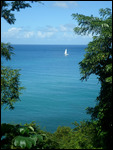
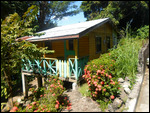
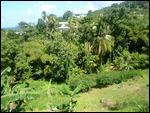
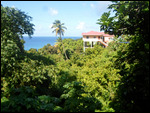




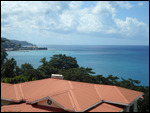


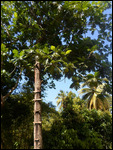
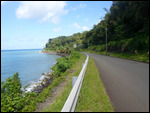
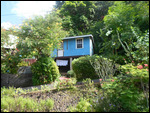
2025-05-22